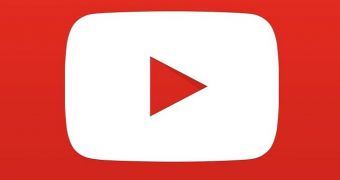Powerful media organizations are backing Google in the company’s effort to keep a controversial film online since the Internet giant sees this as censorship.
The movie in question is “Innocence of Muslim,” a film that was first uploaded to YouTube back in 2012, causing protests in the Middle East because the prophet Muhammad is portrayed as a pedophile.
The movie is about 14 minutes long and features a few actors that have since gone through a lot. After receiving death threats they’ve gone into hiding, as well as the film’s director, Mark Basseley Youssef, who has a target on his back after the Pakistani lawmakers offered a reward for his assassination.
A while back, Cindy Lee Garcia, one of the stars of the movie, filed a lawsuit against Google trying to get the video down. She claimed that her copyright had been infringed upon because she did not know the footage was going to be used. Furthermore, her dialogue was covered by someone else’s voice, changing the words.
Back in February, a court sided with Garcia and ordered Google to remove the video, ignoring the company’s claims that such a move would violate the right to freedom of speech and expression.
Google isn’t fighting to keep this particular movie online because of its contents. In fact, it’s fighting so it doesn’t set a precedent that would “wreak havoc on movie studios, documentary filmmakers, and creative enterprises of all types by giving their most minor contributors control over their products.”
The YouTube video has been removed following the February ruling, but Google is appealing the 9Th Circuit Court, which means there’s another case coming in the following months.
Media organizations such as the Los Angeles Times, the California Newspapers Publishers Association, the First Amendment Coalition, the Washington Post, the National Public Radio and more have filed a court brief in support of Google.
“By ordering the immediate suppression of a controversial video that has been the subject of widespread discussion over the last two years, based on the alleged copyright interest of one performer who appears in a few seconds of the film, the Panel’s decision poses serious risk to news organizations that extend far beyond this case,” the brief states.
It’s not only media corporations that are taking Google’s side, but also other tech giants, including Facebook, eBay, Yahoo, Adobe and Netflix.
On top of the censorship issue, the court’s decision also expands the copyright ownership in an unprecedented way that could allow even the subjects of news coverage to use veto powers over broadcasts they don’t agree with.

 14 DAY TRIAL //
14 DAY TRIAL //